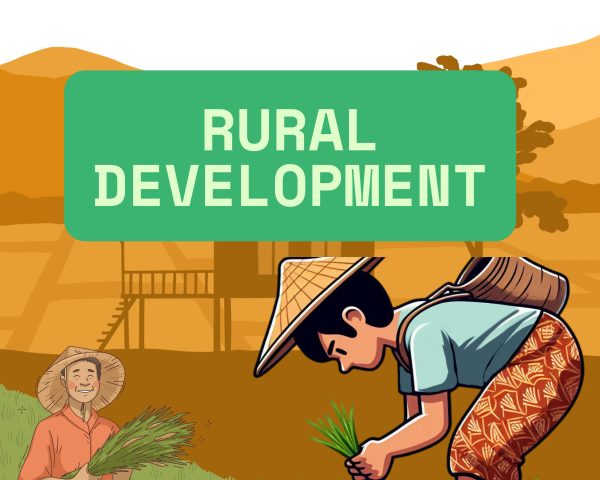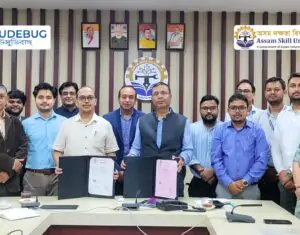
The Role of Small Businesses in Rural India is vital for building strong, self-reliant communities.
The role of small businesses in rural India is the heart of rural India’s growth, accounting for over 40% of the country’s GDP, and playing a powerful role in transforming lives and communities. Small businesses do more than just create jobs—they empower families to improve their lifestyles, achieve personal dreams, and build a better future. As incomes grow, so does confidence and quality of life. These small businesses also play a key role in preserving traditional crafts, foods, and cultural practices that make rural India unique. By offering essential services like groceries, local cuisine, handmade goods, and homestays, small businesses not only support locals but also attract tourists who wish to experience authentic village life. In doing so, they help bridge tradition with opportunity, sustaining both the economy and the rich heritage of rural India. Govt report says Micro, Small and Medium Enterprises (MSME) sector, with more than 6.30 crore enterprises, has emerged as a highly vibrant and dynamic sector of the Indian economy, fostering entrepreneurship and generating employment opportunities at comparatively lower capital cost, next only to agriculture. The Ministry of MSME, Government of India, in collaboration with various organizations & institutes, has pioneered initiatives that promote the growth and development of the MSME sector, including Khadi, Village, and Coir industries. These initiatives and programmes provide comprehensive support by focusing on key areas such as credit support, technological assistance, infrastructure development, skill development and training, enhancing competitiveness, and market assistance. In this blog post, we’ll explore how these small ventures uplift rural regions and examine the most profitable types of businesses thriving in these areas today.
Small ventures, particularly small-scale industries and micro, small, and medium enterprises (MSMEs), are widely recognized for their transformative potential in uplifting rural regions in India. However, a critical examination reveals both the substantial benefits they bring and the persistent challenges that can sometimes limit their impact.
Positive Contributions
1. Economic Empowerment and Job Creation
The role of small businesses in rural India generates employment opportunities, particularly for marginalized groups such as women and young people, thereby reducing poverty and rural-urban migration.
They utilize local resources and traditional skills, diversifying rural economies beyond agriculture and fostering entrepreneurship.
2. Community Resilience and Self-Sufficiency
By building local production capacities and encouraging self-reliance, small ventures enhance the resilience of rural communities against economic shocks and external dependencies.

They often preserve and promote local culture and traditional crafts, contributing to both social cohesion and cultural sustainability.
3. Poverty Alleviation
The role of small businesses in rural India provides alternative and sustainable livelihoods, directly addressing rural poverty and improving living standards.
Evidence suggests that the growth of SMEs is significantly linked to rural development, particularly when there is sufficient access to finance.
4. Inclusive Development
Small ventures empower underrepresented groups, fostering social inclusion and reducing inequality.
They can catalyze local development by reinvesting profits into community infrastructure, education, and health.
Critical Challenges and Limitations
Despite these benefits, several structural and operational barriers hinder the full potential of small ventures in rural upliftment:
1. Limited Access to Finance
Access to affordable credit remains a major obstacle. Traditional banks often view rural businesses as high-risk, leading to inadequate loan disbursal and reliance on informal, high-interest sources.
Many rural entrepreneurs lack awareness of government schemes or face bureaucratic hurdles in accessing institutional finance.
2. Infrastructure Deficits
Poor road connectivity, unreliable electricity, and limited internet access impede business operations, restrict market access, and increase operational costs.
Distribution and logistics challenges make it difficult for rural businesses to reach larger or urban markets.
3. Skills and Knowledge Gaps
Many rural entrepreneurs lack essential business, technical, and digital skills, resulting in poor decision-making and limited ability to scale their ventures.
There is often a lack of exposure to modern business practices, legal formalities, and quality control.
4. Market Access and Competition
The role of small businesses in rural India struggle to compete with well-established urban enterprises due to limited resources and weaker supply chains.
Market access is further constrained by inadequate information and support for integrating with broader value chains or leveraging e-commerce platforms.
5. Policy and Regulatory Barriers
Complex regulatory frameworks, insufficient government support, and a lack of effective policy implementation can stifle the growth of rural ventures.
Many support schemes are either unknown to or inaccessible to rural entrepreneurs, limiting their intended impact.
To address the challenges faced by small businesses in uplifting rural regions, several practical solutions can be implemented, drawing on both institutional innovations and government initiatives:
Solutions to Strengthen Small Businesses in Rural India
1. Expand Access to Affordable Finance
Leverage digital and “phygital” (physical plus digital) lending platforms, like those used by Pragati and Northern Arc, to provide quick, efficient, and accessible loans tailored for rural entrepreneurs. These platforms integrate KYC, credit bureau checks, and data analytics to streamline lending and collections.
Encourage the use of microfinance institutions (MFIs), Self-Help Groups (SHGs), and small-ticket business loans (ranging from ₹30,000 to ₹5,00,000), which are critical for those who lack collateral or formal credit histories.
2. Utilize Government Schemes and Subsidies
Promote awareness and easier access to government schemes such as the Pradhan Mantri Mudra Yojana (PMMY), Stand-Up India, NABARD’s Rural Entrepreneurship Development Program (REDP), and the Start-up Village Entrepreneurship Programme (SVEP). These programs offer loans, grants, and incubation support specifically for rural ventures.
Tap into sector-specific schemes, such as those for food processing (PM FME Scheme) and renewable energy, to diversify and modernize rural businesses.
3. Strengthen Institutional Support and Infrastructure
Institutions like SIDBI (Small Industries Development Bank of India) play a pivotal role in financing and developing the MSME sector by supporting innovation, improving market linkages, and enhancing industrial infrastructure.
Collaborate with banks and NBFCs (Non-Banking Financial Companies) to provide flexible and responsive loan products for small businesses, especially those not served by mainstream banks.
4. Foster Market Linkages and Business Development
Facilitate connections between rural businesses and larger supply chains, urban markets, and e-commerce platforms to expand their customer base and improve profitability.
Provide training and mentorship programs to build business, digital, and technical skills among rural entrepreneurs, enabling them to scale and compete effectively.
5. Encourage Impact Investment and Alternative Funding
Attract private impact investors and social venture funds (e.g., Villgro, Acumen, Bharat Inclusion Seed Fund) to support rural enterprises with high social impact, especially those aligned with sustainable development goals.
Promote crowdfunding and philanthropic grants as alternative sources of capital for innovative rural projects.
6. Simplify Regulatory Processes
Streamline application processes for loans and government schemes, reduce bureaucratic hurdles, and ensure greater transparency in scheme implementation to enhance accessibility for rural entrepreneurs.
By implementing these solutions—expanding financial access, leveraging government and institutional support, fostering skill development, and building robust market linkages—small businesses in rural India can overcome critical barriers and more effectively drive regional upliftment.
Most Profitable Small Businesses in Rural India
Several types of small businesses are thriving and proving highly profitable in rural India today, driven by local demand, resource availability, and changing consumer preferences. Here is a critical examination of the most successful ventures:
1. Retail Stores and Kirana Shops
Grocery and retail stores remain a staple in rural economies, offering daily essentials and household items. Their constant demand ensures steady income and community reliance.
2. Dairy and Milk Centers
Dairy businesses leverage the abundance of cattle in villages, collecting and supplying milk to local dairies or processing it into products like curd, ghee, and paneer. This sector benefits from low input costs and high local consumption.
3. Poultry and Livestock Farming
Poultry farming is a well-established, profitable venture, requiring moderate investment and providing a consistent supply of eggs and meat. Livestock farming, including goat and sheep rearing, also offers good returns due to steady market demand.
4. Flour Mills and Food Processing
Setting up mills for processing grains, spices, or oilseeds adds value to agricultural produce and meets local needs for fresh, unadulterated products. This business benefits from the direct connection to local farmers and consumers.
5. Manufacturing Units
Small-scale manufacturing—such as jute bag production, brick making, or disposable items—takes advantage of affordable rural labor and growing demand for eco-friendly or locally made products.
6. Organic and Modern Farming
Organic farming, horticulture, and flower cultivation are gaining traction as consumers seek chemical-free produce. These ventures fetch premium prices and can be scaled with proper training and market linkages.
7. Bed and Breakfasts/Homestays
In rural areas with tourism potential, converting homes into bed and breakfasts or homestays can be highly profitable, especially near cultural or natural attractions.
8. Fertilizer and Pesticide Stores
Supplying fertilizers, pesticides, and seeds to local farmers meets essential agricultural needs and saves farmers trips to distant towns, ensuring regular business.
9. Packaged Drinking Water and Ice Cream Parlors
Businesses addressing local needs, such as packaged drinking water due to scarcity or ice cream parlors in hot climates, can generate high returns with moderate investment.
10. Educational and Medical Services
Opening tuition centers, private schools, or medical stores addresses critical service gaps in rural areas, with high demand and limited competition.
Summary Table
| Business Type | Key Profit Drivers |
|---|---|
| Retail/Kirana Store | Constant demand, essential goods |
| Dairy/Milk Center | Local supply, high consumption |
| Poultry/Livestock Farming | Steady market, moderate investment |
| Flour Mill/Food Processing | Value addition, local sourcing |
| Manufacturing (e.g., jute bags) | Cheap labor, eco-friendly trends |
| Organic/Modern Farming | Premium pricing, health trends |
| Bed & Breakfast/Homestay | Tourism, cultural appeal |
| Fertilizer/Pesticide Store | Essential farm input, regular demand |
| Packaged Water/Ice Cream Parlor | Climate-driven, daily need |
| Education/Medical Services | Service gap, high local demand |
These ventures thrive due to their alignment with rural needs, resource availability, and evolving market trends. Their profitability is further enhanced when entrepreneurs leverage government schemes, digital tools, and innovative business models.
Way Forward:
Small businesses are the cornerstone of rural India’s transformation, playing a crucial role in economic empowerment, social upliftment, and cultural preservation. They provide vital employment opportunities, reduce poverty, prevent mass migration to cities, and foster a spirit of entrepreneurship and self-reliance among rural populations. Profitable ventures such as retail stores, dairy farming, food processing, manufacturing, and modern agriculture not only meet local needs but also tap into emerging market trends and consumer demands.
However, the journey is not without challenges. Limited access to finance, inadequate infrastructure, skill gaps, and regulatory hurdles continue to constrain the growth and impact of rural small businesses. Addressing these barriers through innovative financial solutions, robust institutional support, targeted government schemes, and capacity-building initiatives is essential for unlocking the full potential of rural entrepreneurship.
Ultimately, empowering small businesses in rural India is not just about economic growth—it is about nurturing resilient, self-sustaining communities where tradition and innovation go hand in hand. By supporting these ventures, we pave the way for inclusive and sustainable development, ensuring that the benefits of progress reach every corner of the country.
Frequently Asked Questions (FAQ)
1. Why are small businesses important in rural India?
Small businesses provide employment, boost local income, and support rural development. They also help preserve traditional crafts and cultures while offering essential goods and services to village communities.
2. What are some common types of small businesses in rural areas?
Popular rural small businesses include dairy farming, tailoring, handicrafts, grocery shops, poultry farming, food stalls, and mobile repair services.
3. How do small businesses help rural families?
They create steady income sources, reduce migration to cities, and improve the standard of living by helping families afford better education, healthcare, and housing.
4. Can small businesses in villages attract tourists?
Yes, rural businesses offering homestays, local food, crafts, and cultural experiences often attract tourists looking for authentic village life.
5. What support do small rural businesses need to grow?
They need access to finance, proper training, digital tools, government schemes, and better infrastructure, like roads, electricity, and internet connectivity.













 [/one_third][two_third]With a team of skilled software Developers, Ujudebug is the best IT Solution Company in Assam. Fully Customized Software Development services with multiple platforms. Our award winning team will we provide the best experience to customers at an affordable price.
[/one_third][two_third]With a team of skilled software Developers, Ujudebug is the best IT Solution Company in Assam. Fully Customized Software Development services with multiple platforms. Our award winning team will we provide the best experience to customers at an affordable price.